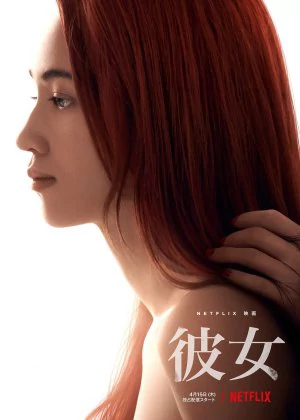Ride or Die

For almost a decade and a half, Ryuichi Hiroki's films have been virtually inaccessible in the West. That all changed when he struck a deal with Netflix. His latest film, Ride or Die [Kanojo], has been available across the globe since day 1 of its release, something that still feels quite magical to me. It took me a while to find the time to watch it, but I was happy to see Netflix didn't get too involved and gave Hiroki free rein. That of course means this isn't the easiest film, especially not for those unfamiliar with his work, personally I think this was a real return to form for Hiroki.
![screen capture of Ride or Die [Kanojo]](/thumbs/img/articles/1200xauto/ride-die-1.webp)
As nice as it is to see a film like this released globally, there's also an unexpected downside. Hiroki's films are quite particular, and they were never that easy to get a hold of, meaning that the people who watched them mostly knew what they were getting themselves into. Or were at least part of the sphere these films were intended for. The Netflix audience on the other hand is very broad and with everything being just a click away, a film like Ride or Die is suddenly thrown into the deep end. I've been facepalming myself through some of the critiques that appeared online, but I guess that just comes with the territory.
Ride or Die is an adaptation of Gunjō, a manga written by Ching Nakamura (a woman, for those of you not too familiar with Asian names). The story has very strong female/lesbian themes and isn't too shy about showing things openly and unabashedly, the issue of course (for some) is that Hiroki is a man. Now, Hiroki has always been recognized for dealing with taboo subjects and featuring strong female leads, handling both with the utmost respect, but clearly not everyone is on board with that. Off the cuff remarks about the male gaze and leering camera work are disappointing but expected, that's just the age we live in now. Just rest assured that Hiroki didn't turn all pervy here.
Completely out of the blue, Rei gets a phone call from Nanae, an old high school friend. Even though Rei's celebrating her girlfriend's birthday, she drops everything and rushes over to meet her. Nanae confesses to Rei that her marriage is in shambles and shows the bruises from the abusive relationship with her husband. Rei promises Nanae she will take care of the problem and sets out to seduce him. Nanae's husband appears willing enough to cheat on his wife and as they ride home, Rei mentally prepares herself for what she's about to do.
![screen capture of Ride or Die [Kanojo]](/thumbs/img/articles/1200xauto/ride-die-2.webp)
Visually this is still very much a Hiroki film, though it's obvious he had a slightly more generous budget to work with. The film consists mostly of longer takes that keep a strong focus on the characters, though not necessarily from up close. One of the most typical shots in that regard is a beautiful tracking shot from an opposite sidewalk. Hiroki pays closer attention to lighting this time around, giving the film a warmer and more melancholic feel, the shots also seem a bit more planned out. Meanwhile, the visuals haven't lost their intimate and spontaneous vibe, keeping the emotional distance between the characters and the audience to a minimum.
The soundtrack consists mostly of existing pop tracks, sporting a varied blend of US and Japanese performers. Hiroki picks his music with care and avoids the more cheesy stretches of pop music, even so I think a more distinctive score may have worked better for a film like Ride or Die. It's not a bad soundtrack, it's perfectly appropriate, but it fails to add anything substantial. I guess Hiroki avoids falling into the trap of picking even more generic piano/string tunes, but it wouldn't hurt to inject a bit more character through the score next time around.
Ride or Die is very dependent on its lead actors, especially with such a complex relationship between the two leads at the center of its story. Kiko Mizuhara can be considered a veteran by now and carries the film like a pro, Honami Satô is less experienced but doesn't fade next to Mizuhara. Hiroki is known to draw the best from his actresses and with the extra help of an "intimacy coordinator" on set the lead duo manage to really flesh out their relationship, without it ever becoming too obvious or scripted. The secondary cast is solid but less relevant, though watchful viewers may recognize Anne Suzuki in a commendable supporting role.
![screen capture of Ride or Die [Kanojo]](/thumbs/img/articles/1200xauto/ride-die-3.webp)
The relationship between the two leads is anything but transparent. Several flashbacks add to the complexity, but it's more than just the history between them that complicates matters, as they try to figure out what they are to each other. Then Hiroki goes and makes it even tougher on himself by choosing a narrative structure that slides from tension to drama over time. Personally, I really dug the switch, people all hyped up by the dark and aggressive start might be disappointed to see the film gradually morph into a more character-driven drama.
Ride or Die is a rather tough film for people who just turned on Netflix and were hoping to see something exciting and/or amusing. It deals with complex characters and taboos in a respectful but ultimately very straightforward manner, not something most people are used to watching. As a longtime Hiroki fan though, I really loved what he did here. Superb performances, beautiful cinematography and complex characters turn a ballsy thriller into a gripping character drama, sporting one of the neatest endings I've seen in a while. It's a film for mature audiences though, and I don't mean because of the limited nudity and/or sexual content, so come prepared.